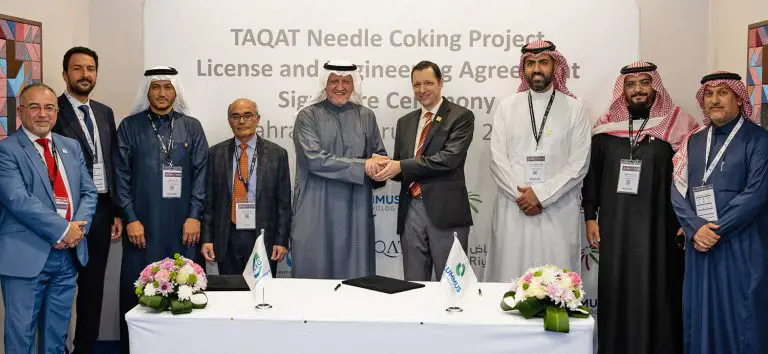A new deal has been signed for the development of the New Coke/Synthetic Graphite Complex in Rabigh.
The deal (a license and engineering agreement) was signed by Saudi Arabia-based market leader, TAQAT Development Company. The innovator in the global energy market signed the deal with the provider of hydroprocessing technologies and engineering services, Chevron Lummus Global (CLG).
The latter is a result of a joint venture between Lummus Technology and Chevron, a US energy major. As a whole, the JV strives to offer the most efficient solutions for the upgrade of heavy oil residues.
Overview of the Coke/Synthetic Graphite Complex in Rabigh
The project features a new 75,000 TPA needle complex development. Citing TAQAT’s website, the complex will feature two separate installations. Taking it a step further, the project will also include another plant that will be built within the refinery.
CLG will be responsible for the provision of basic design, as well as pilot plant testing. Furthermore, the company will also provide operations support alongside additional engineering.
For supplying the project with feedstock, its developer appointed Rabigh Refining & Petrochemical Company (Petro Rabigh).
CLG’s two-step coking process
Upon completion, the grassroots complex will make use of CLG’s two-step coking process in the conversion of feedstock streams. This, in turn, will result in a reduction of the environmental impact of the facility’s operations.
While speaking about the process, CLG noted that its proprietary technology stems from decades of continual refinement alongside accumulated data. With a record of over 60 unit designs as well as commercial installations, the process has proven to be a superior option.
Also Read: New luxury shopping and entertainment hub, VIA Riyadh, to open in Saudi Arabia
Moreover, the process helps repurpose feedstock that would have otherwise, been categorized as low-value, or waste material. As a result, the project will significantly contribute towards a more sustainable approach towards resource utilization.

